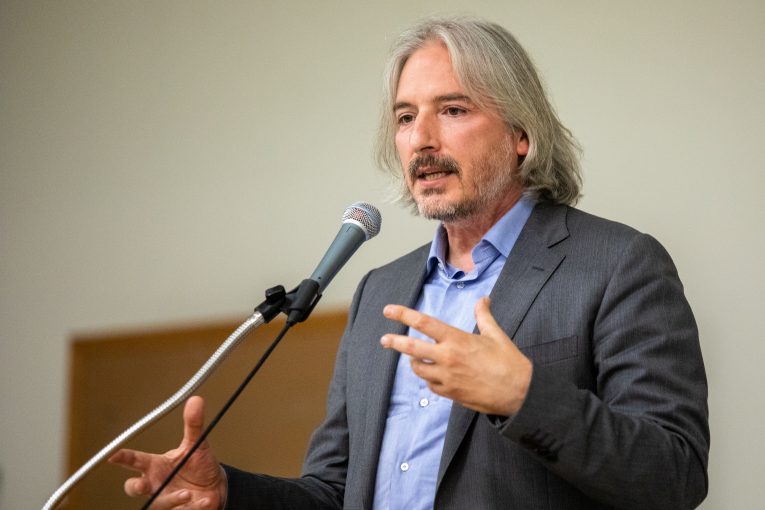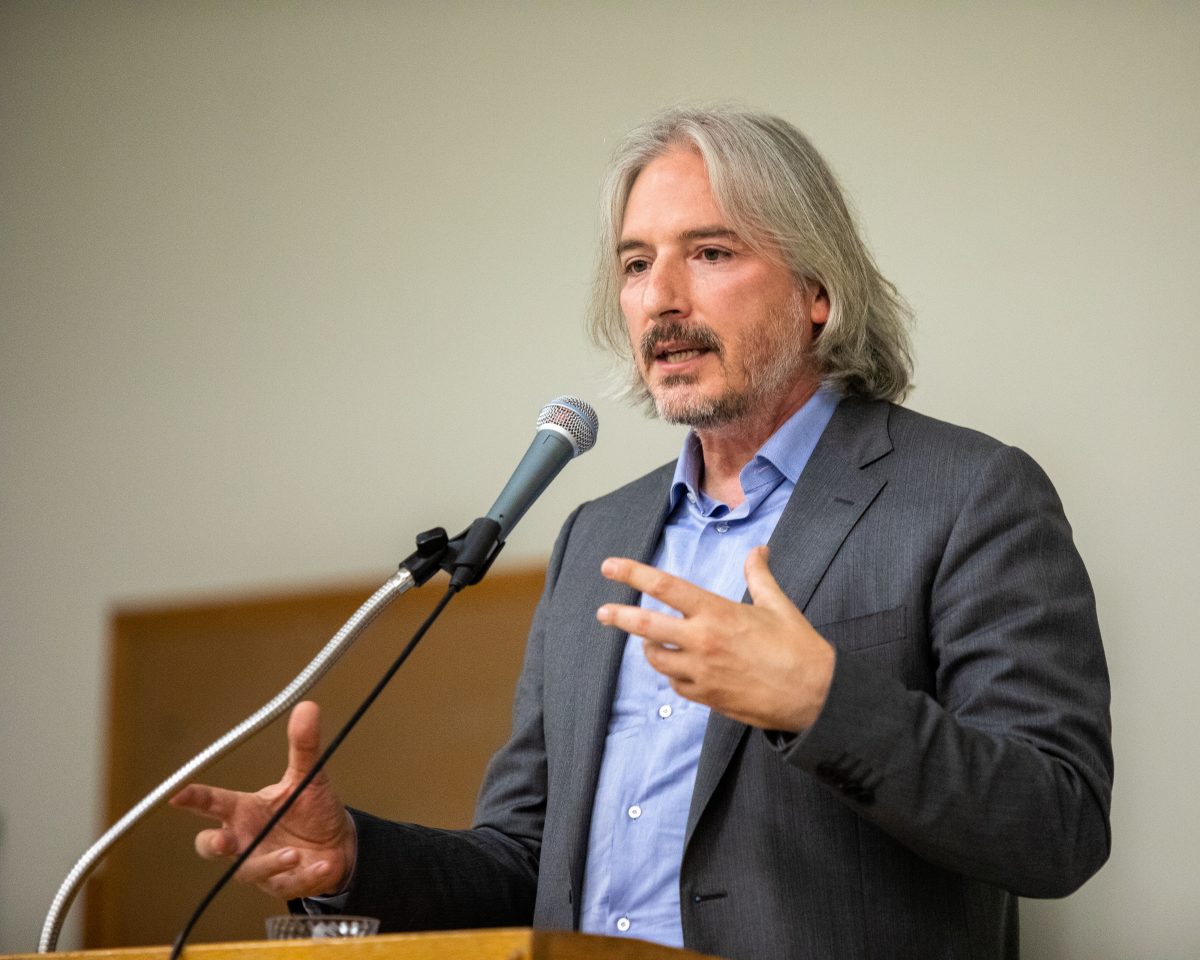

By David M. Greenwald
Executive Editor
San Francisco, CA – When prominent San Francisco Chronicle Reporter Heather Knight interviewed former prosecutor Brooke Jenkins‘ exit from the San Francisco DA’s office, it appeared to be yet another devastating blow to DA Chesa Boudin and his office.
The featured case and focal point of the article was the Daniel Gudino case. Gudino tragically killed his mother and was found guilty of that crime by a jury.
But the Public Defender Ilona Solomon’s account of the case on Thursday started to put that account into a different light. On Thursday, the Vanguard spoke with Matt Gonzalez, the Chief Attorney at the Public Defender’s Office who expressed his concerns with the coverage of the case and the depiction of Jenkins.
Knight in the course of reporting the story of Jenkins and the Gudino case, interviewed both Solomon and Gonzalez, but by their account excluded and disregarded key details because these did not fit Knight’s narrative.
At issue was was whether Gudino was legally insane.
Knight reports, “Jenkins argued that the evidence showed Gudino, despite mental health struggles, understood what he was doing.”
What Knight doesn’t tell the reader is that both court appointed experts as well as another panelist hired by the Public Defender’s office all agreed that Gudino was legally insane and that it was Jenkins who had to shop around for someone with a different opinion.
According to both Solomon and Gonzalez, this was not because they failed to communicate an accurate version of events, rather it was because Knight chose not to report the details that they told her.
Solomon writes, “Ms. Jenkins, the line prosecutor featured in Knight’s article, nonetheless spent $40,000 of taxpayer money to hire a rent-an-expert never been approved for court appointment and whose report was at best laughable, just to find someone who would disagree with the weight of the evidence.”
Rather than submitting to the court appointed experts on the issue of insanity, Jenkins then took the murder case to a sanity phase after the jury had found guilt on the guilt phase, and the jury hung – 7-5 for insanity. It was at this point, that DA Chesa Boudin stepped in and made the determination to go with the insanity finding.
By Solomon’s account, “Given the overwhelming weight of the evidence, this should have been an easy case for Brooke Jenkins.” She believes, “After the guilt stage of the trial, she should have agreed to a finding of insanity which would have allowed Mr. Gudino to go to a mental hospital, but for reasons still unclear to me, she refused.”
Matt Gonzalez told the Vanguard that he spoke to Knight prior to her story, “I said that there was nothing about this decision that is particularly controversial.”
In fact, having practiced law for decades in San Francisco, Gonzalez believes that the decisions here made by Chesa Boudin, would have been made by previous DA’s Terence Hallinan, Kamala Harris or Geroge Gascon.
“All of them, their deputies would have stipulated to criminal insanity in this case,” he said.
Contrary the impression in the Knight article, “Jenkins had never tried a homicide case before. So the notion that she has this experience – that’s just rubbish.”
From the Public Defender’s perspective, they were not happy that Chesa Boudin’s office did not stipulate to insanity from the outset.
“(Jenkins) characterization that he had undermined her or taken away from her, on the contrary it’s outrageous that he submitted this decision to an attorney with so little experience in the area of homicide practice and certainly in criminal insanity.”
Matt Gonzalez shared that prior to the trial, Judge Conroy had reviewed the psych reports after Gudino was convicted but prior to the insanity phase. The defense at that point was ready to submit to the judge’s decision based on the psych reports, but Jenkins refused and wanted to take it to a jury.
What Knight reported was, “Jenkins said she and the public defender agreed that rather than begin the trial from scratch, they’d allow the judge in the case to decide the matter of insanity from the bench.”
Gonzalez explained, “The Chronicle’s story suggested that she wanted to stipulate to the court, but that’s only her position after she took it to jury and failed to get the outcome (she wanted).”
“That’s when Boudin stepped in,” he said. “But that’s a whole other way that (Knight) totally mischaracterized how things unfolded.”
In Gonzalez’s view, “the story really was meant to mislead the public.”
Solomon wrote, “Knight also ignores that Jenkins acted against the wishes of the family, and against the findings of medical experts.”
Gonzalez like Solomon pointed out that the family of the deceased all supported insanity in this case. By pursuing criminal remedies, Jenkins was actually going against the wishes of the family.
“Having been in the criminal justice system now for 30 years, seeing cases handling cases I can assure you, this is not a controversial outcome for a case where both court appointed doctors found a determination of criminal insanity,” Gonzalez said.
He was pointed out, “To find somebody with a different conclusion, just speaks to I think a desire to undermine justice – that’s the way I read Jenkins’ actions in this case.”
Solomon went as far as to write, “I also informed Knight, Jenkins’ contrary arguments during the two phases arguably constituted prosecutorial misconduct, and I am investigating whether a state bar complaint is warranted. None of this is progressive; her stance is the antithesis of what Boudin campaigned on and what an ethical prosecutor must do.”
Solomon concluded, “The result reached in my client’s case is the only just one, one that would have been uncontroversial and expected in any other prior administration, and Knight’s depiction of it has no place in respectable journalism.”

